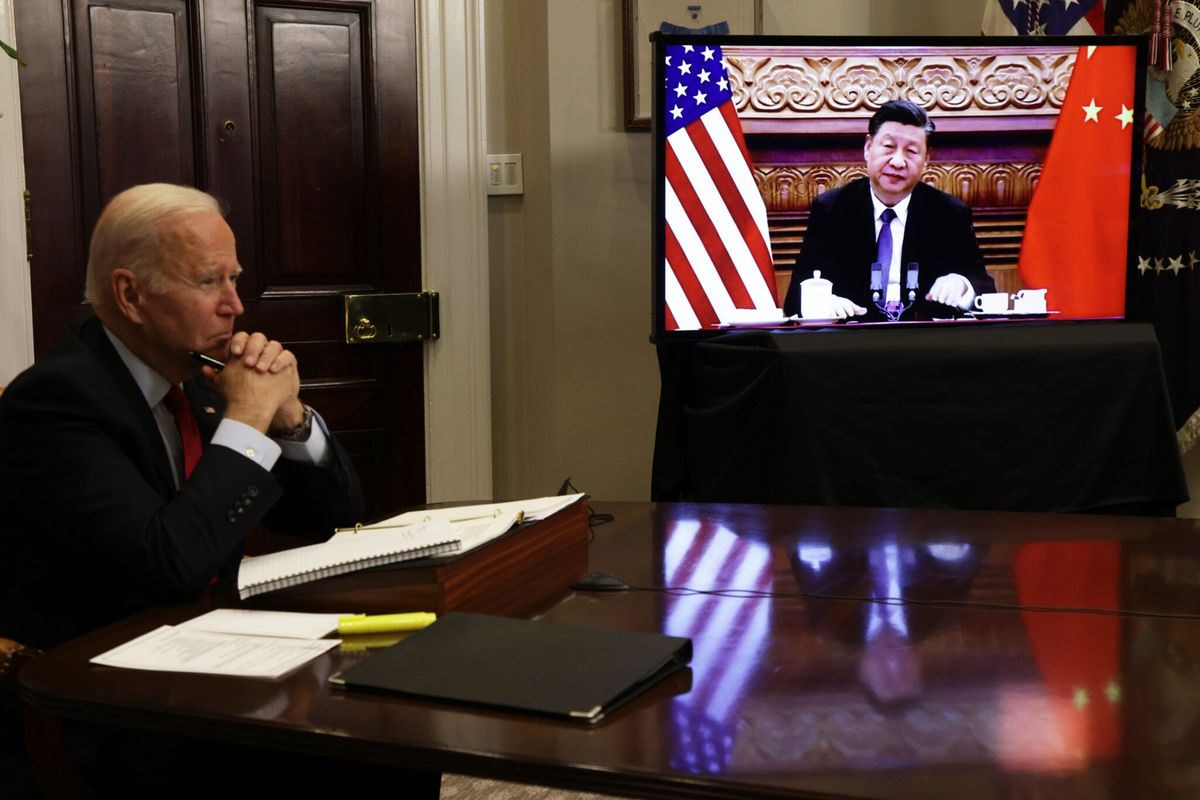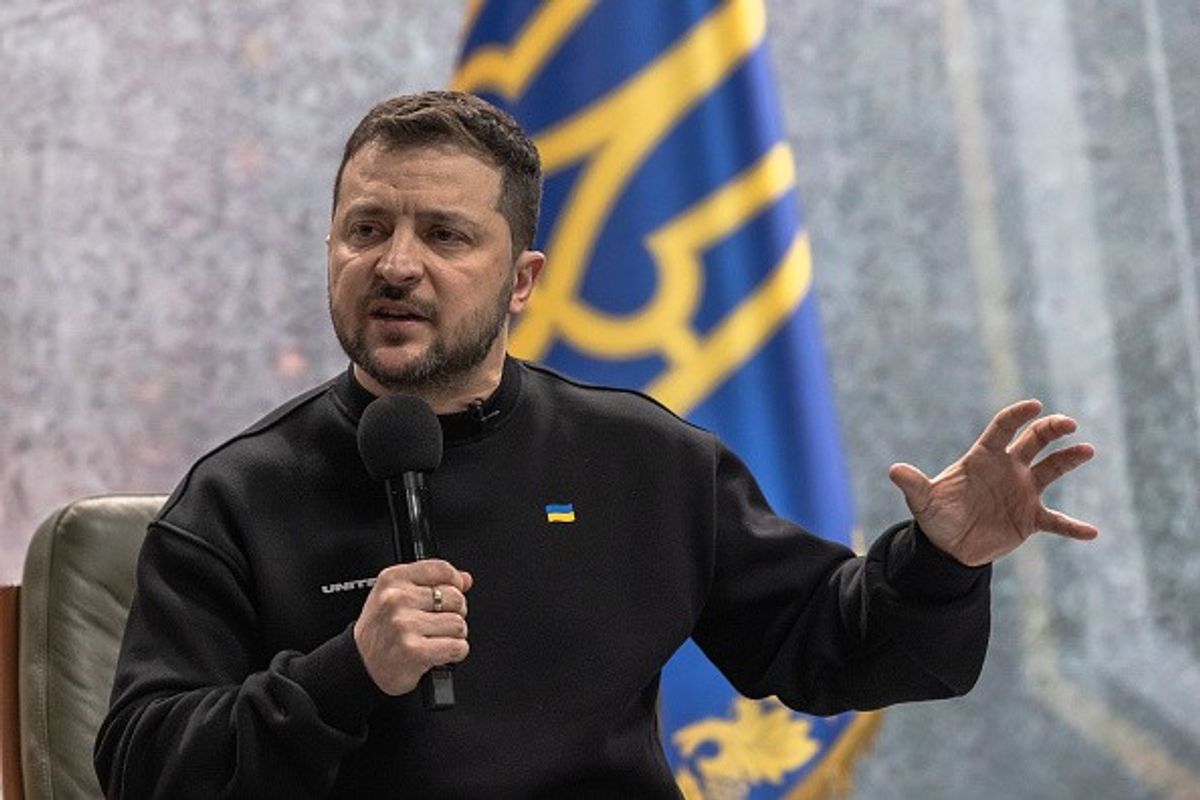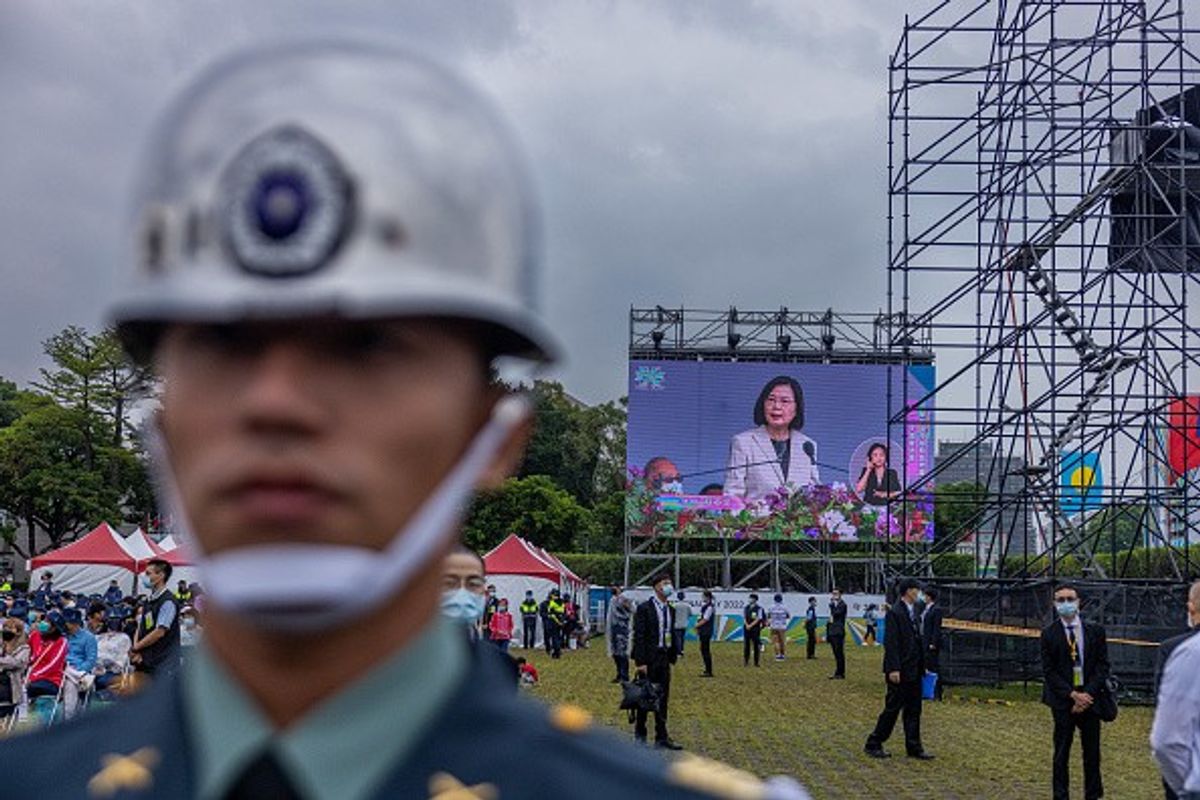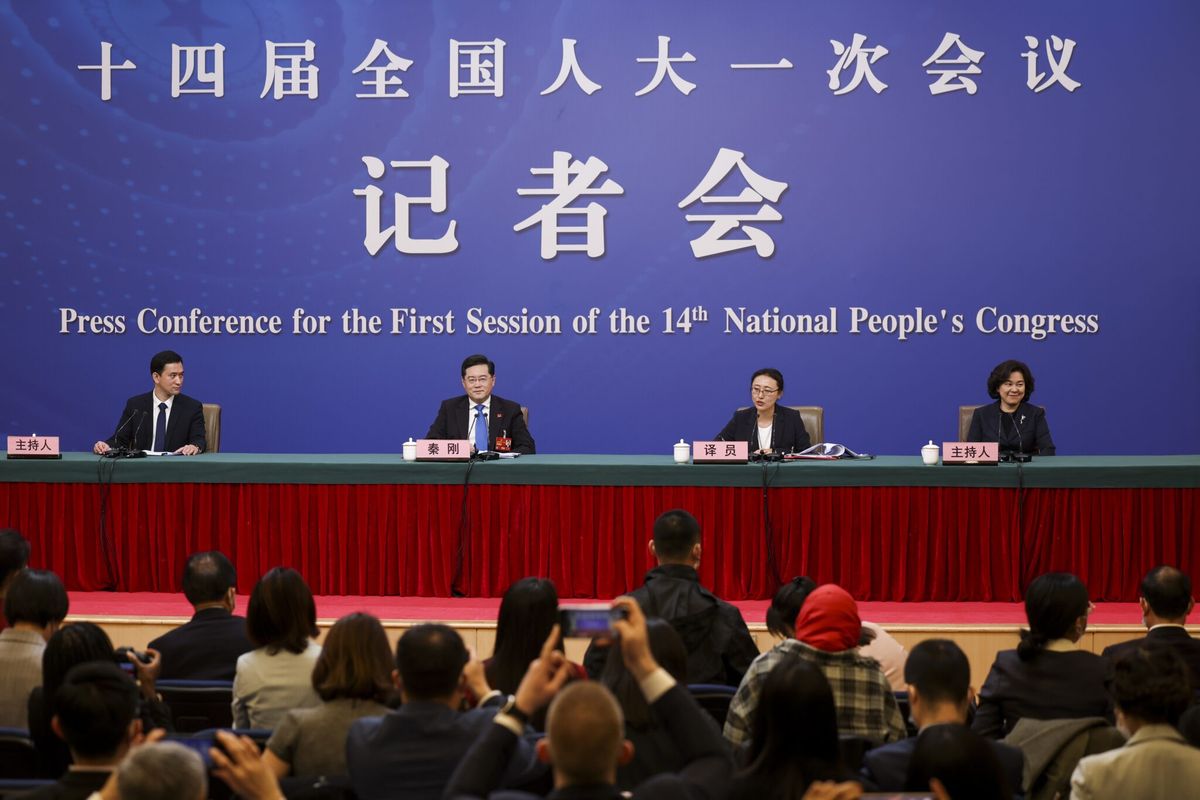EXPERT Q&A
Read also How Dirty and Dangerous will Putin Get in Ukraine for Subscriber+Members
The Cipher Brief: What do you see as the significance of Russia’s announcement of a “partial” mobilization of reserve forces?
Cancian: I don't think there's any way mobilization will shift the balance on the battlefield. My guess is that's what the generals have told Putin. What I think that Putin is trying to do is extend the war into the winter, when he hopes that cold and inflation and high energy prices will push the European governments to demand a ceasefire, an in-place ceasefire. Clearly, they're playing the energy card to try to put Europe under pressure. You look at the polling, and the Europeans are, on the one hand, very supportive of Ukrainian independence and democracy, but on the other hand, most of them — other than Poland and the Baltic countries — are ambivalent about providing aid and concerned about getting involved.
So I think that the mobilization is aimed at stabilizing the battlefield. Maybe they had some notions that they might nibble off a little more of the Donbas, but I don't think that's realistic at this point. Ukraine is just getting stronger and stronger all the time.
What risks does it pose for popular support of Putin? Well, of course, we're reading every day about popular discontent with mobilization. That's clearly been a big risk for Putin, because he has pitched this as a special military operation, not as a war, and has for the most part insulated the Russian people from the effects of the war. This expands the effects. I don't think it's going to expand the effects as much as people think it will, but it still does expand the effects, and to that extent, involves the Russian people in a war that they are clearly not that enthusiastic about. So yes, there is a risk there.
There's a set of political risks about what this means for the health of the Putin administration. But on the military side, the question is, is the opposition strong enough that it really affects... that it affects the number of soldiers who get called up? It's hard to tell at this point. You could make an argument either way, well, but we'll know as this plays out.
The Cipher Brief: There was a lot of hand-wringing in the West about the prospect of Russia taking this step because it seems to up the ante for the conflict itself. How do you think Ukraine and the West are handling it so far?
Cancian: Let me start with how it changes the options for diplomatic settlement, negotiated settlement. I think the clear answer is it makes those possibilities more remote, for two reasons. One is that I think the generals went to Putin and said "We have to do something. We are losing on the battlefield." Of course, they had just lost a lot of territory, east of Kharkiv, and they're under pressure down around Kherson. So continuing to do what they were doing was not working. So I think they went to Putin and said, "We got to do something."
Essentially, Putin had three options. He could declare partial mobilization, he could use nuclear weapons, or he could negotiate a settlement. The latter two have severe problems, so he chose mobilization. But what that means is that he chose not to enter negotiations and is clearly trying to pull some success out of the war.
And the second part is concurrently they're doing these referenda in the provinces. And that also makes negotiated settlements more difficult because now Putin is claiming that these are going to be part of Russia, and he could undo that, but that makes it harder to do that. So for both reasons, a diplomatic solution is more remote now.
How should the U.S. and the West respond? I don't think they need to respond specifically to mobilization. I think what they need to do is continue to do what they've been doing, which is to provide training and equipment to Ukraine. The U.S. is committed to doing that. The Administration's sent up this 13-billion-dollar proposal for the continuing resolution starting on the 1st of October, and they're putting pressure on the allies to continue their support. I think that makes the most sense. They're also clearly not willing to get more deeply involved militarily.
Several media suggests that within Ukraine, Russia will turn dirtier and more dangerous, replaying its tactics in Syria. That's not impossible, but I haven't seen any indication of that. There's nothing of that in Putin's speech or in subsequent statements. Now, having said that, the Russians are hardly gentle when it comes to military operations. We saw what happened to Mariupol and Donetsk. So they're clearly willing to use firepower to a great degree, with much less concern about damage to infrastructure and civilians. But I don't see anything. I haven't seen anything so far that suggested they're going to get dirtier or more dangerous.
The Cipher Brief: If Putin continues to feel increasingly cornered, not only on the battlefield, but by domestic opposition and turmoil, will that make for a dangerous turn in the conflict?
Cancian: It's not impossible, but it doesn't help Russia. It doesn't make battlefield success any more likely. It makes it arguably less likely. So I don't see what the point would be. They already are willing to use firepower with very few restrictions, but it's firepower when there's some battlefield advantage for the most part. So I don't see it. Putin hasn't said anything, and I would've expected him to have signaled in his speech that we're taking the gloves off or do stuff like that.
But what are the implications of Russia increasing assaults on critical infrastructure civilian targets for Ukrainian resolve? In fact, I think the assaults are declining, not increasing. That's not because the Russians have suddenly become concerned about the well-being of Ukrainians. They're just running out of missiles. If you look at the usage of missiles over time, the usage has been declining because their inventory's declining, and they're only using missiles at specific times maybe to signal some resolution or annoyance or something. But I think those uses are, statistically, declining. I don't think that's going to be a major element of their war going forward.
Now having said that, they still launch missiles and missiles still cause casualties and destruction. I mean it's not that the environment is benign, it's just that their ability to inflict extensive destruction on infrastructure and civilian targets with missiles is just limited, fortunately.
The Cipher Brief: What about the effects of the approach of winter?
Cancian: Energy is clearly a part of Putin's strategy for dealing with Europe. And the onset of winter they're hoping will put the European publics under more pressure.
In terms of events on the battlefield, events will slow down. Now, the war began on February 24th, so a lot of it was conducted during the winter. Operations won't stop in the winter, but it will slow them down. Things get harder. So I would expect some slow down on the battlefield.
Subscriber+Members have a higher level of access to Cipher Brief Expert Perspectives on Global Issues. Upgrading to Subscriber+ Status now.
The Cipher Brief: What are Ukraine's military options going forward?
Cancian: Regarding the military options going forward, Ukraine has a window here before the effects of the mobilization start to appear. The mobilization is not going to be a surge. It's going to be a dribble of personnel arriving in the frontlines. Who knows how many — 300,000? But it's going to be a dribble and maybe a stream. It's not going to be a gush, but it might be enough. I think what the general's hope is it's enough to fill up the ranks and stiffen the resistance along the current lines. But Ukraine has a window before that begins, and it's an opportunity to launch more counter-offensives. So I think that they have an opportunity to launch more attacks.
The Cipher Brief: What might Ukraine do to negate any advantages Russia might gain through the popular referenda?
Cancian: First I'm not 100 percent sure how much of an advantage they gain. I've seen talk about instituting conscription in some of these new territories. There's going to be a lot of pushback to that, and the militias that they've been able to include are not very high quality. But I think Ukraine's tools are mostly diplomatic. That is, making sure that no one outside of the handful of rogue pariah nations recognize the occupied territories, and that everybody makes statements saying that this is not a real incorporation — we don't recognize these changes. And that keeps the possibility open both for counterattacks and for a later settlement.
The Cipher Brief: Do you give any credence to the idea that once these territories become part of Russia proper that the nature of attacks on these newly annexed territories changes, that Ukraine is now attacking Russia itself?
Cancian: I've heard many people make that argument. I don't think so. Again, going back to Putin's speech, he doesn't indicate that in the text. And he could have. Now, when the referenda are finished and he makes some announcement about welcoming them into Russia, maybe he will say something different. The text of his speech doesn't indicate that they would be covered by this nuclear umbrella that he has declared over the Russian homeland.
There is an asterisk though. He has said something about Crimea being treated differently. He has said something about Crimea being part of Russia. So it's not impossible that he would argue that Crimea is part of Russia and therefore is covered by this umbrella. Now, we'll see how that plays out, because clearly Ukrainians have been attacking targets in Crimea. They're blowing up air bases, and the Russians didn't do anything about it. What the effect will be is unclear. Maybe it only covers ground invasion. On the other hand, Ukraine has indicated that it wants Crimea back.
Early on, it signaled that it was willing to compromise on Crimea. Frankly, Crimea is something that at the end of the day, Ukraine might be willing to negotiate on. It's clearly a gray area, unlike the Donbas. I mean, first of all, my understanding is that if you conducted an honest referendum in Crimea, they would vote to be part of Russia. And if that is the case, and I'm told it is, it's sort of hard to force them to go back to Ukraine if they don't want to. So making Crimea something different may not be that big a deal.
The Cipher Brief: Is your sense at the moment that the U.S. and Western allies will at least maintain, if not intensify their supply and variety of weaponry to Ukraine?
Cancian: The short answer is yes. I think that they will. I haven't seen any statements by either the U.S. Administration or other countries that they are stepping up their support as a result of mobilization. But the U.S. administration has said it's going to continue to support and the allies have made supportive comments. Most of the aid, something like 80 percent – two-thirds at least — comes from the United States. But I've not seen any statements that the U.S. and NATO and ally are going to do something different.
Read more expert-driven national security insights, perspective and analysis in The Cipher Brief















